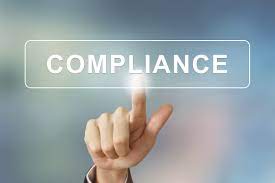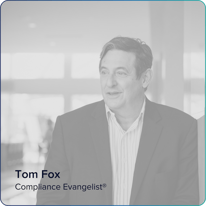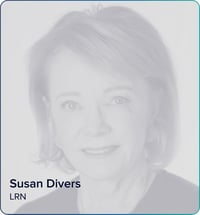We conclude our exploration of the latest resolution of a Foreign Corruption Practices Act (FCPA) violation involving the Swiss construction giant, ABB Ltd. There have been several reference documents used this week and they include the Securities and Exchange Commission Complaint (SEC Order); the Department of Justice (DOJ) Press Release. Plea Agreement (ABB Plea Agreement) and Deferred Prosecution Agreement(DPA), the ABB South Africa Plea Agreement and Criminal Information, the ABB Management Services Plea Agreement and Criminal Information.
Over this blog post series, we have been exploring these key questions: How did ABB obtain such a superior resolution? And, as a three-time FCPA violator, how did the company avoid a monitor? Today, we celebrate how this most unusual FCPA enforcement action is a huge victory for compliance.
How did ABB obtain such a superior resolution?
There appears to be three components to ABB’s avoidance of a monitor. It all began with ABB’s attempt to self-disclose. Please note this attempt was not successful as the South African press broke the story of ABB’s bribery and corruption between the time ABB called to set up meeting and actually sat down with the DOJ. Yet the DOJ was impressed enough with ABB’s intent or at least desire to self-disclose that it spent a considerable amount of ink in the resolution documents detailing how ABB got close but missed timely self-disclosing.
Yet this putative failure at self-disclosure laid the groundwork for everything that followed, eventually leading to the stunning result. As the DOJ stated in the DPA, “in evaluating the appropriate disposition of this matter-including the appropriate form of the resolution-considered evidence that, within a very short time of leaning of the misconduct, the Company contacted the Fraud Section and scheduled a meeting to discuss matters under investigation by the Fraud Section and the Company. The Company did not specifically identify the South Africa misconduct in that meeting request, but it disclosed the South Africa misconduct during the scheduled meeting, subsequently presented evidence to the Offices that it intended to disclose the misconduct related to South Africa during the scheduled meeting and did not know of any imminent media reports when the meeting was scheduled.”
The second component is the above-noted discussion about ABB’s near self-disclosure. While it could have amounted to an own goal, given the lengthy DOJ discussion in the settlement documents, it appears the DOJ received ABB’s near miss more favorably. The second point is something every Chief Compliance Officer (CCO) and outside counsel need to understand; that being truly extraordinary.
Matt Kelly identified the one piece of information which took what is now this standard recitation of extraordinary cooperation to a truly high level of ‘extraordinary’. In a blog post, Kelly pointed out that in the SEC Order, it stated, “ABB’s cooperation included real-time sharing of facts learned during its own internal investigation.” This meant “ABB was sharing information with regulators as quickly as it found those facts, without necessarily knowing how such admissions might affect its overall case and settlement chances.” He then opined, “When you don’t know the full extent of your sins and the punishment to follow, but you cooperate with regulators anyway — that’s an impressive commitment to the culture of compliance that the Justice Department wants to see.”
Next were the actions by ABB in their remediation. The Plea Agreement reported that ABB “engaged in extensive remedial measures, including hiring experienced compliance personnel and, following a root-cause analysis of the conduct described in the Statement of Facts, investing significant additional resources in compliance testing and monitoring throughout the organization; implementing targeted training programs, as well as on-site supplementary case-study sessions; conducting continuing monitoring and testing to assess engagement with new training measures; restructuring of reporting by internal project teams to ensure compliance oversight; and promptly disciplining employees involved in the misconduct.” This final point was expanded on in the SEC Order which reported that all employees involved in the misconduct were terminated.
As a three-time FCPA violator, how did the company avoid a monitor?
ABB essentially created its own monitorship around testing its compliance program and reporting to the DOJ. In a section entitled “Written Work Plans, Reviews and Reports”, ABB agreed to conduct a first review and prepare a first report, followed by at least two follow-up reviews and reports. But more than simply reporting, ABB agreed to create and submit for review a workplan for this ongoing testing of its compliance program, as the program was detailed in the DPA. The DPA specified, “No later than one (I) year from the date this Agreement is executed, the Company shall submit to the Offices a written report setting forth:
- a complete description of its remediation efforts to date;
- a complete description of the testing conducted to evaluate the effectiveness of the compliance program and the results of that testing; and
- its proposals to ensure that its compliance program is reasonably designed, implemented, and enforced so that the program is effective in deterring and detecting violations of the FCPA and other applicable anti-corruption laws.”
ABB also agreed to meet with the DOJ quarterly to submit and discuss the results of its ongoing testing. While I am sure many other companies have made a similar proposal to the DOJ, through its actions during the pendency of the investigation, ABB convinced the DOJ it could be trusted to follow through with its commitment.
How does all of this work into the DOJ decision not to require a monitor? There is now a 10-factor test that was laid out in the Monaco Memo. Factor 1 is whether the company self-disclosed the incident at issue. Factors 4-6 all relate to conduct and actions when the illegal activity occurred, not after discovery and self-disclosure. Factor 4 relates to the length or pervasiveness of the conduct and whether senior management was involved. Factor 5 reviews “the exploitation of an inadequate compliance program or system of internal controls.” Factor 6 asks if compliance personnel were involved or were basically negligent in failing to “appropriately escalate or respond to red flags.” Factors 7-10 considered ABB’s actions post-reporting, how the company became aware of the matter, its root cause analysis, its remedial actions and overall reduction in the company’s risk profile. While there was no substantive discussion of these factors in the any of the resolution documents, it appears the DOJ criteria for a monitor was not met.
The ABB FCPA resolution represents one of the biggest wins for corporate compliance that we have seen in recent memory. A now thrice-recidivist received a discount on its overall fine and penalty and avoided a monitor through truly exception work after the bribery and corruption was uncovered. Every compliance officer should thoroughly study this matter to see the specific steps ABB engaged in, starting with their first phone call to the DOJ. During your investigation, embrace the DOJ’s need for speed in communicating new and salient facts as they are uncovered, perform a root cause analysis and then remediate, remediate, and remediate. ABB is to be commended and indeed celebrated for its success in this matter.










